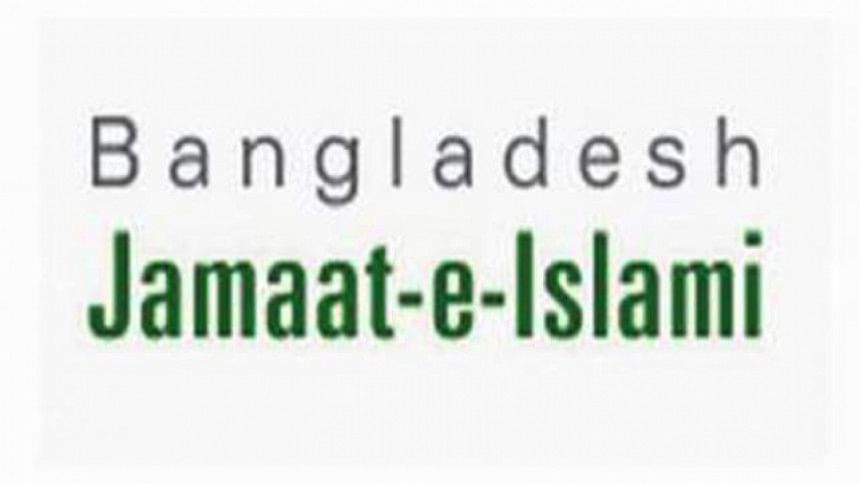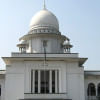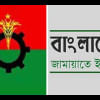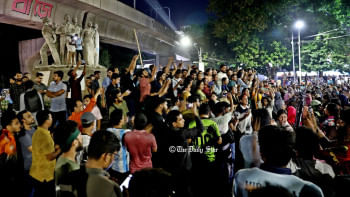Anti-Liberation Role: Jamaat torn over apology question

The rift between the young and senior leaders of the Jamaat-e-Islami has widened further over renaming the party and apologising to the nation for its role during the Liberation War, say party insiders.
Many of the party leaders born after the country's independence want the party to apologise to the nation for its anti-liberation role in 1971 and rebrand it as a pro-Bangladesh party with a new name.
But the party's senior leaders, who are in its highest policy-making body Majlish-e-Shura, stand firm on their pre-1971 principles, arguing that forgoing the existing ideology and adopting a new name would be the final nail in the party's coffin.
Seeking anonymity, a Jamaat central leader yesterday told this newspaper that at an emergency meeting in December last year, the party's central executive council comprising mid-level leaders decided in principle that the party should apologise for its role during the 1971 Liberation War.
The Jamaat leader also said many leaders at the meeting were in favour of renaming the party and adopting a new strategy for its survival.
Some of them even said the party had become almost an underground organisation as many of its leaders and activists have been in jail in politically motivated cases filed since 2010, added the leader.
The emergency meeting of the council was convened days before the December 30 election in which the Awami League won a landslide.
In a landmark verdict on August 1, 2013, the High Court declared illegal the Jamaat's registration as a political party with the Election Commission. The EC last year scrapped the party's registration.
“Many of our young leaders think that we are not getting people's support due to our role in 1971. The situation may change if we offer apology to the nation,” a member of the party's executive council told this correspondent over the phone.
But the party's senior leaders think otherwise.
At a meeting in mid-January, Jamaat's Majlish-e-Shura didn't approve the decision the executive council made in principle.
Asked, a top leader of the party and member of the Majlish-e-Shura said that offering apology for the party's role in 1971 and renaming it may jeopardise the organisation.
“Our top leaders, including the ameer and the secretary general, were hanged in the name of their alleged involvement in crimes against humanity. Their conviction and hanging in politically motivated cases will be justified if we offer apology for our role in 1971,” the leader said, seeking anonymity.
On the pretext of protecting Pakistan's integrity, the religion-based political party embarked on a notorious mission to wipe out the Bangalee nation in collaboration with the Pakistan occupation army.
Following Bangladesh's independence, the government banned five communal outfits, including the Jamaat, which not only opposed the birth of the nation but also actively helped the Pakistan occupation forces commit genocide and other war crimes.
After the assassination of Bangabandhu Sheikh Mujibur Rahman in 1975, the banned parties, including the Jamaat, were given the green light to do politics during the tenure of Ziaur Rahman's regime.
In 2010, the AL-led government formed the International Crimes Tribunal to try those, including Jamaat leaders, involved in crimes against humanity in 1971.
As the party's top leaders were arrested on the charge of crimes against humanity, most members of the party and its student wing, Islami Chhatra Shibir, went into hiding.
Since then, a section of the Jamaat and Shibir men has been calling for apologising to the nation to steer the party out of difficulties.
Following his arrest in war crimes cases in mid-2010, the then Jamaat assistant secretary general Mohammad Kamaruzzaman sent a message to party high-ups to remove from the party the leaders facing war crimes charges, and hand over the party leadership to young leaders.
Later, a move was made to bring changes to the party, but it couldn't make any headway due to strong opposition from the high-ups, said party insiders.
“If the party had offered apology after the arrest of its senior leaders, it might not have fallen in such a bad situation,” said a central Jamaat leader and also a former president of Shibir.

 For all latest news, follow The Daily Star's Google News channel.
For all latest news, follow The Daily Star's Google News channel. 








Comments